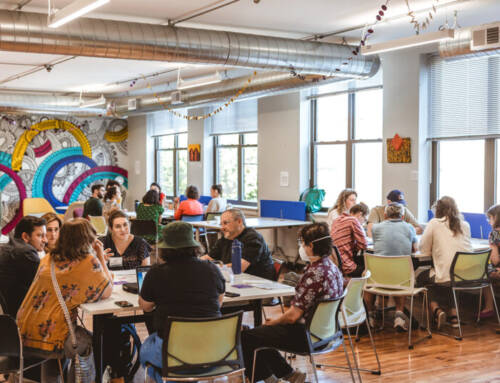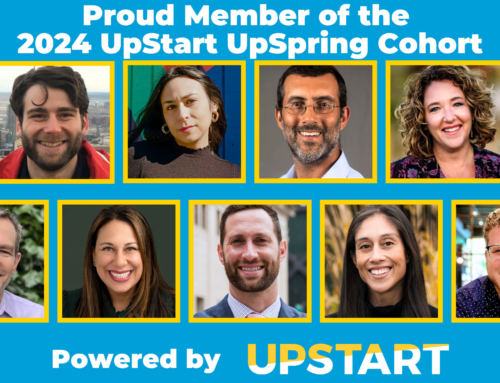A recent article in the Business section of the Sunday New York Times, entitled 6 Months, $90,000, and (Maybe) a Great Idea, described the phenomenon of the Entrepreneur in Residence(EIR). In Silicon Valley, there is a growing trend amongst venture capital firms to give business entrepreneurs, many of whom have successfully started and sold companies in the past, the opportunity to use their office space, benefit from a generous stipend, and put on their thinking hats. The hope is that they will come up with the next Google or Facebook.
Michael Bauer is one such entrepreneur the article highlights: While the expectations are high for his ideas, Mr. Bauer maintains that the E.I.R. programs work precisely because failure is allowed in Silicon Valley. In other parts of the world, there is a big stigma on your rsum if you try and fail, he said. That doesnt happen here. Instead, people like the E.I.R.s are ready to keep on taking swings.
In the field of innovation, there is an inevitable spectrum of success and struggle. Entrepreneurs must balance and then thrive in a continuum of experiences that range from wild successes to setbacks and even failure. This is true in the general world, and it is true in the field of Jewish innovation as well.
But whose responsibility is it when new Jewish initiatives find themselves moving toward the struggling end of the continuum? And what role in particular should the parent incubator play when its child is in dire financial straits? Who is ultimately responsible for the dollars that have been invested in this initiative? Is it irresponsible of the incubating organizations to continue to accept, encourage and nurture new start-ups, given that so many young start-ups are struggling? The growing field of parent organizations that nurture young start-ups, such as Bikkurim, PresenTense, Pears Foundation, JumpStart, Paideaia and UpStart Bay Area, do, to some extent, mitigate the risk for foundations and other investors in these new Jewish ideas. But its still a very risky business.
Jewish Milestones, which provides the Bay Area with educational resources to support all Jews seeking accessible and meaningful lifecycle rituals, is currently undergoing a Refresh stage, analogous to hitting a Refresh button on a Web browser, which enables the page to pause and reload. Though they have proven their concept, and their programs are in high demand, they are rethinking and restructuring their staff and programmatic offerings due to the current economic climate and the financial struggles it has caused them. UpStart, which incubated Jewish Milestones from 2005-2008, has been grappling with how to deal with the reality that one of its star projects, often-highlighted as an example of success in the field, is experiencing deep growing pains.
Bikkurim, which has incubated 26 new Jewish initiatives in the past 10 years, five of whom no longer exist, and about a dozen of whom are, in one way or another, struggling, has long been thinking about this issue. This is part of the risk tolerance we have for start-ups, says Nina Bruder, Bikkurims executive director.
“Some succeed, some fail, and some struggle, and that is the name of the game. If we play it too safe, then many of the most exciting new ideas to hit the Jewish community cant take root. We think that if every group we take in succeeds, then we as an incubator are actually failing the community it would mean that we havent taken enough risk ourselves. We are risk-mitigators, not risk-eliminators.
Ultimately, it is critical for the Jewish community, and especially the funding community, to acknowledge that it is responsible for the emergent leaders and new ideas in the field necessary for sustaining and nourishing the success of the whole Jewish communal enterprise. Only by providing these ideas the chance to succeed can Jewish life grow and thrive. As Bruder of Bikkurim says, Bikkurim wouldnt succeed without the unofficial partnerships we have with funders like UJA-Federation of NY, the Natan Fund, The Covenant Foundation, the Jacob and Hilda Blaustein Foundation, and other funders who see the gems in the rough and help provide the consistent funding to help them get over their initial start-up hump. In the realm of parenting, it is often said that it takes a village to raise a child. The analogy holds here, too.
Uncertainty, and bumps in the road, are core to the realm of innovation, and, I believe, not only innovation. Such is the nature of investing your heart, soul, and precious financial resources in someone else, and allowing for the unknown to take its course. We should applaud our social entrepreneurs for their wisdom and tenacity, and, especially for their ability to step back when it is necessary, recognize their new realities, and adapt to the changes those realities have imposed. For the Jewish community, exhibiting patience and extending support during these Refresh moments, will mean that, no matter the short-term pattern, we will ultimately continue to grow, and remain relevant and vibrant.
Maya thanks Nina Bruder, executive director of Bikkurim, for her contributions to this piece.
This piecehas been crossposted on e-jewishphilanthropy.com and the Jewish Week.
Our purpose is to enable entrepreneurs to bring bold Jewish ideas to light. We help them reach Up to people in new ways that are meaningful, more inclusive, and create a brighter future for our Jewish community and the world we share.




